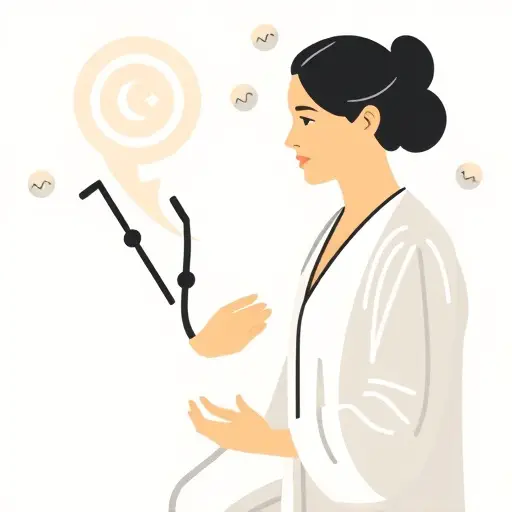Integrative medicine in Columbus, Ohio, is a modern approach combining ancient wisdom from civilizations like China, India, and Greece with evidence-based complementary therapies. This holistic practice addresses the interconnectedness of physical, mental, and emotional well-being, using modalities such as nutrition, acupuncture, yoga, and mindfulness. Rooted in whole-person health care principles, it gains popularity globally for its improved health outcomes and deeper understanding of wellness.
“Integrative medicine is transforming global health initiatives by merging ancient wisdom with modern science. This approach, rooted in whole-person care, draws on historical principles of healing to address the mind-body connection, prevention, and individualization—key distinctions from conventional medicine.
From local practices in Columbus to international healthcare efforts, integrative medicine is making a profound impact. By considering cultural sensitivities and accessibility, it offers a holistic pathway toward improved global well-being.”
- The Evolution of Integrative Medicine: From Ancient Roots to Modern Practice
- – Explore the origins and historical context of whole-person health care
- – Discuss ancient principles of healing and their integration into modern medicine
- Principles of Integrative Medicine: A Holistic Approach
The Evolution of Integrative Medicine: From Ancient Roots to Modern Practice

Integrative medicine has evolved significantly over time, drawing from ancient wisdom and traditional practices to create a modern approach that addresses the whole person—body, mind, and spirit. Its roots can be traced back to ancient civilizations like China, India, and Greece, where holistic healing methods were prevalent. These traditions emphasized natural remedies, mindfulness, and the interconnectedness of physical and mental health.
In recent years, integrative medicine has gained traction globally, particularly in cities like Columbus, where it’s reshaping healthcare practices. This modern interpretation incorporates evidence-based complementary therapies alongside conventional medical treatments. The principles of healing in integrative medicine focus on prevention, patient education, and individualized care, reflecting its origins as a whole-person health care approach.
– Explore the origins and historical context of whole-person health care

The principles of integrative medicine in Columbus and beyond have deep roots in a holistic approach to health and healing. Historically, many traditional cultures embraced whole-person health care, focusing on the intricate interplay between physical, mental, emotional, and spiritual aspects of human well-being. This ancient understanding recognized that these interconnected dimensions influence each other, ultimately shaping our overall health.
The modern integrative medicine movement draws from this rich historical context. It emerged in response to a growing recognition of the limitations of conventional medicine alone, particularly in addressing the complex interplay of factors affecting global health. By incorporating diverse therapeutic modalities and practices, such as nutrition, acupuncture, yoga, and mindfulness, integrative medicine seeks to optimize healing and prevent disease by nurturing the body’s inherent self-regulating mechanisms.
– Discuss ancient principles of healing and their integration into modern medicine

In the heart of Columbus, Ohio, a movement is gaining traction that bridges ancient wisdom with modern science – Integrative Medicine. This approach leverages the time-honored principles of healing that have been practiced for centuries, integrating them into contemporary healthcare systems. The roots of integrative medicine trace back to the origins of whole-person health care, where treatment extends beyond symptoms to address the interconnectedness of a patient’s physical, mental, and emotional well-being.
Ancient civilizations, from Chinese traditional medicine to Ayurvedic practices in India, emphasized holistic healing methods. These principles, such as balancing energy flow, nurturing the mind-body connection, and using natural remedies, have been refined and now form the bedrock of Integrative Medicine. By embracing these ancient insights alongside advancements in modern science, healthcare providers are equipped to offer more comprehensive care that respects the complexity of the human body and its unique healing capabilities.
Principles of Integrative Medicine: A Holistic Approach

Integrative Medicine, a practice that combines conventional and complementary therapies, has emerged as a powerful tool in global health initiatives. Its core principles revolve around a holistic approach to healing, acknowledging the intricate interplay between a person’s physical, mental, and emotional well-being. This method prioritizes individual care tailored to each patient’s unique needs, rather than treating specific symptoms in isolation.
The origins of whole-person health care can be traced back centuries ago when various ancient cultures practiced healing methods focused on balance and harmony within the body. Modern Integrative Medicine builds upon these foundational principles, incorporating evidence-based practices like acupuncture, herbal remedies, mindfulness techniques, and nutrition therapy alongside conventional medical treatments. This comprehensive strategy has gained significant traction in Columbus and worldwide, contributing to improved health outcomes and a more nuanced understanding of wellness.
